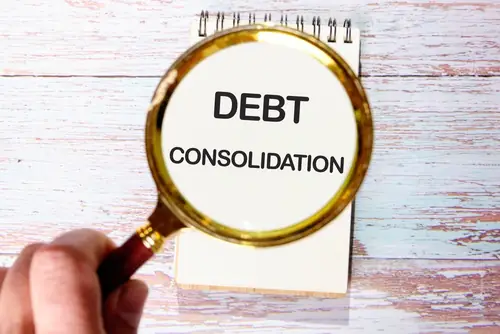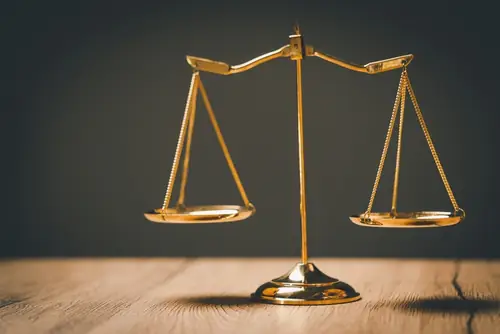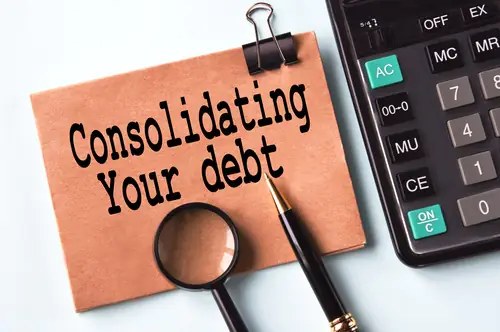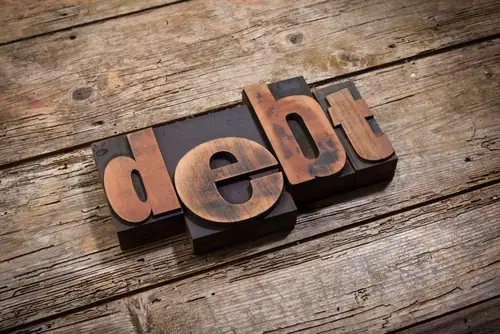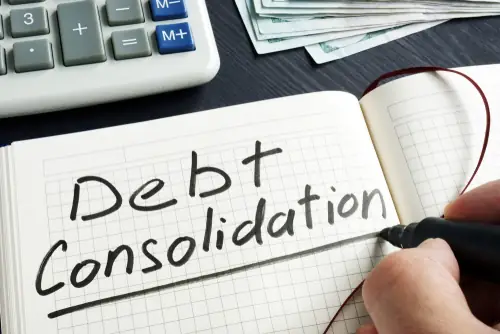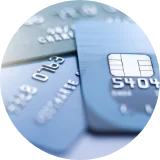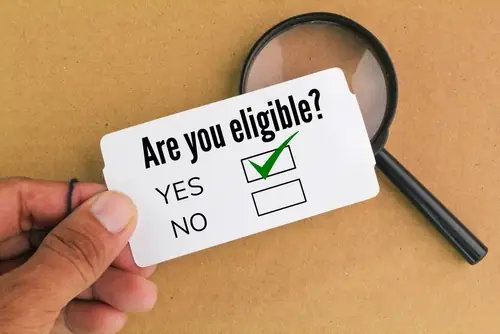Debt Consolidation Services
Debt consolidation is a financial strategy that combines multiple unsecured debts—such as credit cards and personal loans into a single loan or monthly payment. By doing this, it helps simplify repayment and reduce financial strain. If you’re struggling to manage credit card balances, medical bills, or personal loans, a debt consolidation service can provide an organized, efficient way to regain control of your finances while potentially lowering costs.
When you work with a debt consolidation company like United Settlement, we can help lower your interest rates and reduce monthly payments, laying the foundation for a strong, stable financial future.
Table Of Contents
Benefits of Debt Consolidation
Reduce Your Debt
Shrink your debt and grow your savings. We’re your partners in chipping away at those towering credit card balances.
Avoid Bankruptcy
Steer clear of bankruptcy’s shadow. Our experts craft escape routes that protect your credit and your peace of mind.
Financial Freedom
Our tailored strategies are your blueprint to a future where your finances are yours to enjoy, not owe.
How Do Debt Consolidation Services Work?
Debt consolidation merges multiple unsecured debts into one new account or loan, replacing several payments with a single monthly payment. Instead of managing different due dates and interest rates, you make one payment to your consolidation provider, who then distributes funds to your creditors on your behalf.
A debt consolidation loan streamlines repayment with one fixed rate and term, reducing the chance of missed payments and helping to lower your overall interest costs. When approved for consolidation, your existing balances are paid off through a new, structured loan, often with a lower rate than your current debts. This can make repayment simpler, more predictable, and potentially less expensive over time.


Who Debt Consolidation Is For
Debt consolidation can be a helpful solution for individuals working to manage multiple unsecured debts and who could benefit from organized and simplified repayment. If your financial challenge involves high-interest credit cards or medical bills, using professional debt consolidation services can help you achieve financial freedom by restructuring what you owe into a single, predictable payment plan.
It’s often ideal for those who have a steady income and can afford their monthly payments, but who struggle with having so many. It can provide an opportunity to maintain your existing credit standing and avoid negotiations and bankruptcy while making measurable progress toward becoming debt-free.
When to Consider Debt Consolidation Services
You may want to explore debt consolidation services when you can still make your monthly payments, but they become difficult to manage or feel like they’re not having an impact on your total debt balance. Common signs include missed due dates, multiple high-interest balances, or making little progress toward reducing your principal.
By consolidating your debts, you can simplify your budget, often secure a lower rate, and pay off what you owe faster. Consolidation does not erase debt; it reorganizes it into a structure that fits your income and goals. When managed responsibly, it can prevent further strain and support long-term credit stability while providing savings opportunities for the future.
Are Debt Consolidation Services Right for You?
Debt consolidation can be an effective solution if your main challenge is managing multiple payments rather than an inability to pay. It can be valuable for those who qualify for better interest terms and prefer a structured, predictable payment schedule. People with stable income and moderate debt levels often benefit most. Review your credit, debt-to-income ratio, and loan terms before proceeding to ensure the program fits your budget and long-term goals.
Debt Consolidation vs Debt Settlement
Debt Consolidation involves taking out one single loan to pay off many unsecured debts, resulting in a single lower monthly payment. If the debtor makes regular timely payments debt consolidation will have a positive impact on the debtor’s credit score. Debt Settlement is different.
Debt Settlement will take place on delinquent accounts which are at or near charge-off status, the point at which creditors realize they may never generate income from them. In debt settlement creditors will often accept less than the balance owed in one lump-sum payment or over time.
The major difference between debt settlement programs and debt consolidation loans is that there is no loan involved in a debt settlement program.
Both are designed to get the debtor out of debt within five years or less, the credit counseling agency managing the DMP focuses on educating the debtor to alter spending habits and works with creditors to reduce interest rates and monthly payments. The counseling agency then collects a monthly payment from the debtor and makes appropriate disbursements to creditors.
Debt Consolidation Loan Considerations
If are burdened by high levels of unsecured debt, debt consolidation could be a viable solution. To succeed, you must be focused and motivated to become debt-free. The simplified payment structure with lower monthly payments and reduced interest expense can really help your cash flow.
Most creditors view debt consolidation as a favorable method to pay off financial obligations. Though you may see some negative impact to your credit profile initially from the closure of several credit card accounts within a debt management program, when you consistently make timely payments.
This can eventually result in your accounts being reported to the three major credit bureaus (Experian, Equifax, and TransUnion) as paid in full. This will enhance both your credit score and overall credit profile, making you more appealing to creditors again.
Best of all, you will finally be out from under the debt burden that has been robbing you of peace of mind, and you will be free to enjoy the virtues of a debt-free lifestyle and freedom.

Why United Settlement for Debt Consolidation?
If are burdened by high levels of unsecured debt, debt consolidation could be a viable solution. To succeed, you must be focused and motivated to become debt-free. The simplified payment structure with lower monthly payments and reduced interest expense can really help your cash flow.
Most creditors view debt consolidation as a favorable method to pay off financial obligations. Though you may see some negative impact to your credit profile initially from the closure of several credit card accounts within a debt management program, when you consistently make timely payments.
This can eventually result in your accounts being reported to the three major credit bureaus (Experian, Equifax, and TransUnion) as paid in full. This will enhance both your credit score and overall credit profile, making you more appealing to creditors again.
Best of all, you will finally be out from under the debt burden that has been robbing you of peace of mind, and you will be free to enjoy the virtues of a debt-free lifestyle and freedom.
Education Center

Credit Cards And Your Credit
Debt Consolidation FAQ
A debt consolidation program combines multiple unsecured debts into one manageable monthly payment. It simplifies repayment by streamlining balances under a single fixed term or interest rate.
A debt consolidation loan consolidates multiple debts into one single loan, typically resulting in a lower interest rate and monthly payment. Debt consolidation loans streamline the repayment process while simultaneously lowering interest expense and the total amount repaid over time. Personal installment loans, low-interest rate promotional credit card balance transfers, home equity loans and student loan consolidations are some examples of debt consolidation loans.
For those individuals with FICO scores below 580, it can be more difficult to secure a debt consolidation loan at an attractive interest rate in the form of a personal installment loan or promotional rate credit card balance transfer. In these instances, online lenders (such as Upstart and Avant) that look at data extending beyond the FICO score and credit profile can prove useful. Factors such as job history, income and educational background are taken into account in making the lending decision.
Debt consolidation loans will not hurt a credit score – in fact, timely repayment on a debt consolidation loan will help a credit score. Just as with any other form of debt, any late or missed payments can quickly cause harm to a credit score and profile.
Typical debts eligible for consolidation include credit cards, personal loans, and medical bills. Some programs may also include certain private student loans or collection accounts, depending on your situation.
Professional debt consolidation can be beneficial if you have a steady income and high-interest balances that could be managed more effectively through one monthly payment. By providing some basic information, we can help you estimate your new monthly payment.
Debt consolidation costs vary depending on the loan terms, interest rate, and provider. Legitimate debt consolidation services will explain all fees upfront with no hidden charges.
A debt consolidation loan is specifically structured to merge existing debts, while a personal loan can be used for various purposes. Consolidation loans are often better suited for managing multiple accounts under one rate.
Debt consolidation can be worth it if it lowers your interest, simplifies repayment, and fits your budget.
Yes, debt consolidation services can reduce your total interest expense and help you pay down debt faster, though savings depend on your specific loan terms and repayment habits.
Debt Consolidation Videos
Debt Consolidation
Debt consolidation loans combine all credit card debts into one monthly payment. Decrease the chance of submitting late payments with a debt management plan.
Too Much Credit Card Debt
Problems begin to arise when a borrower becomes too cavalier with credit lines and begins to use credit cards for extravagances and other expenditures that stretch the individual to live beyond his or her means.
Credit Card Interest Rates
Interest rates for credit cards fall into three categories: variable, fixed and promotional. Take the next steps to lower your credit card interest rates.
Master Your Finances:
Our Latest Insights & Articles

